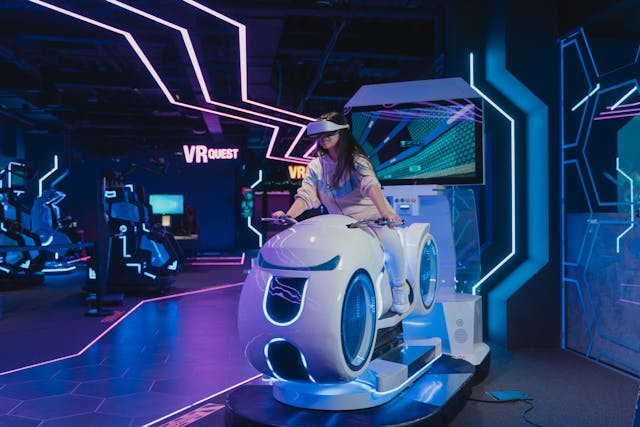The Impact of AI on Game Design and Player Experience
Artificial intelligence (AI) is transforming the gaming industry in ways that were once the realm of science fiction. From smarter non-player characters (NPCs) to personalized gameplay experiences, AI is reshaping both how games are designed and how players interact with them. In 2025, its influence on the gaming world is more profound than ever.

Smarter and More Realistic NPCs
One of the most noticeable impacts of AI is on game characters and behaviors:
- Adaptive AI opponents: Enemies learn from player actions, creating dynamic and challenging experiences.
- Realistic behaviors: NPCs can simulate emotions, social interactions, and decision-making, enhancing immersion.
- Procedural storytelling: AI can generate quests, dialogue, and story arcs that respond to player choices.
This leads to games that feel alive, reactive, and engaging, keeping players invested for longer.
Personalized Player Experiences
AI enables games to adapt to individual player preferences:
- Difficulty adjustment: Games can monitor performance and adjust challenges automatically, balancing fun and frustration.
- Customized content: AI can recommend in-game items, challenges, or storylines tailored to a player’s style.
- Player behavior analytics: Developers gain insights into player habits, allowing for refined mechanics and improved engagement.
These personalized experiences make games feel unique to each player, enhancing satisfaction and retention.
Procedural Content and World-Building
AI is increasingly used to create game worlds and content dynamically:
- Procedural generation: Landscapes, cities, and levels can be generated in real-time, saving development time and creating virtually endless gameplay.
- AI-driven art and sound design: Music, textures, and visual effects can be created or adjusted by AI to match the game environment or player mood.
- Real-time simulation: AI can manage ecosystems, economies, or social systems within games, making virtual worlds more realistic.
This allows developers to craft richer, more expansive worlds without exponentially increasing production costs.
Enhancing Multiplayer and Social Gaming
AI also influences community and multiplayer experiences:
- Matchmaking: AI ensures fair and balanced matches based on skill levels and play styles.
- Cheat detection: AI identifies suspicious behavior quickly, maintaining fair play.
- Dynamic events: Games can introduce new challenges or content based on collective player activity, keeping communities engaged.
These innovations make multiplayer gaming more competitive, balanced, and socially interactive.
Challenges and Ethical Considerations
Despite the advantages, AI introduces challenges in game design:
- Overreliance on automation: Excessive AI-driven content may reduce developer creativity.
- Player manipulation: AI that predicts and influences behavior must be used responsibly to avoid exploitation.
- Technical complexity: Advanced AI systems can increase development costs and require sophisticated testing.
Balancing innovation with ethics and design integrity is essential.

Final Thoughts
AI is redefining the possibilities in game design and player experience, offering smarter NPCs, personalized gameplay, expansive worlds, and better community management. By 2025, games are becoming more immersive, adaptive, and engaging than ever before.
For players, AI means richer experiences; for developers, it unlocks new creative horizons — and together, it’s shaping the future of interactive entertainment.












